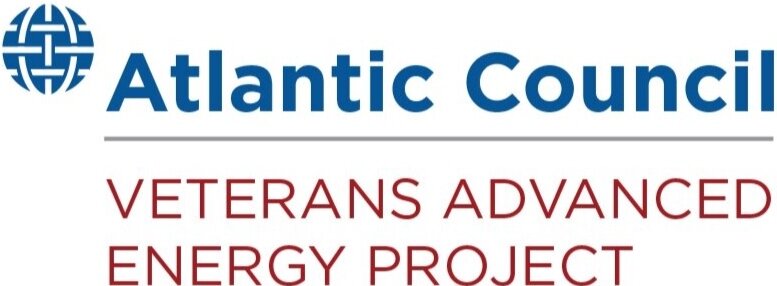Veterans in Advanced Energy Profile: Jasper Camacho
/Jasper camacho, a 2021-2022 Veterans advanced energy fellow. click the button below to learn more about the fellowship.
Jasper Camacho, a 2021-2022 Veterans Advanced Energy Fellow, jump-started his career in the US Army and National Guard with the opportunity to study economics and invest in power generation around the world. To other veterans, he says, the military prepares people to look at a problem, develop a plan, and execute. The energy industry is a complex coordination problem and needs future leaders to execute the mission. As told to Jordan Bekenstein
Why did you join the military and what was your role?
My father was an immigrant to the United States. He joined the US Army out of high school so I grew up largely living a military dependent life on Army bases around the world, and a lot of my friends had the same type of upbringing. We always felt that service to country was an important element in our lives, so a lot of us joined the military out of high school or after college. I was given a scholarship to join the Army through a program that actively recruited ROTC students to join the Texas Army National Guard. It made a lot of sense for me financially and career-wise because I was allowed to pursue a private sector career and continue my military service.
I enlisted as a private first class and was placed in an armor division. After graduating college, I was commissioned as a 2nd Lieutenant, selected to the medical service corps, and became a platoon leader for a forward support medical battalion (ambulatory) which planned and operated medical evacuations. I served in Texas Army National Guard, Massachusetts Army National Guard, and finally ended my career with the US Army Reserves at the rank of Captain.
How did the military influence your career trajectory into energy?
As a citizen soldier, I was allowed to have a private sector life, so I was able to start my career in energy out of college immediately. I studied economics at Texas A&M University. I interned and took a job after graduation with an economic consulting firm in Boston where they were studying and advising regional power markets on the wholesale electricity prices which helped provide an entry into the energy industry. I always had aspirations to live and work outside of the United States due to my military upbringing so I took roles overseas making investments and commercial management of power generation assets around the world.
What are you most excited about in advanced energy developments, and what are you most concerned about?
I’m excited about the rate of viability in fusion energy science and technology. I believe that we are beginning to see steps toward commercializing fusion energy. I hope to have a role in its development in my career.
The concern I have is how do we as a society consider the needs of emerging markets throughout the greater goal of this energy transition. How do you get countries in Asia to adopt non-carbon based technologies and systems yet at the same time want an industrial base, sustained income, and reduced poverty? I don’t believe there’s a silver bullet right now. I think that gas power plants have a place in this transition; however, at this present moment, the US Government won’t provide funding to anything related to oil and gas technologies. This void will be replaced by other governments who are eager to expand their presence in these markets.
Why is energy important to US national security?
A threat for US national security is the competition for natural resources, and energy has historically provided this source of competition. By accelerating the energy transition to renewables or a fuel type that is more distributed, we can reduce the importance of energy as a competitive resource. The value that isn’t consumed from sustainable energy technology can go into other important development aspects, such as education, infrastructure, and general development in the emerging world.
Do you have advice you would like to share with other veterans?
The energy sector is a great place for veterans. While there’s a certain level of technical knowledge and jargon in the energy sector, this can be learned. What the energy sector needs are leaders and managers to execute various missions across the industry. Energy is a multi-function, multi-stakeholder coordination problem, and the military trains people very well to look at a problem, assess the underlying risks and constraints, develop plans, and execute the plan. I would advise veterans to not be afraid to jump into the energy sector if that’s what you’re interested in.
What are you most looking forward to about the Veterans Advanced Energy Fellowship?
I’m certainly excited about learning new things from my cohort and developing myself personally. I hope to share my experience with them as well. I hope to stay involved with the fellowship and be a resource for other veterans.




